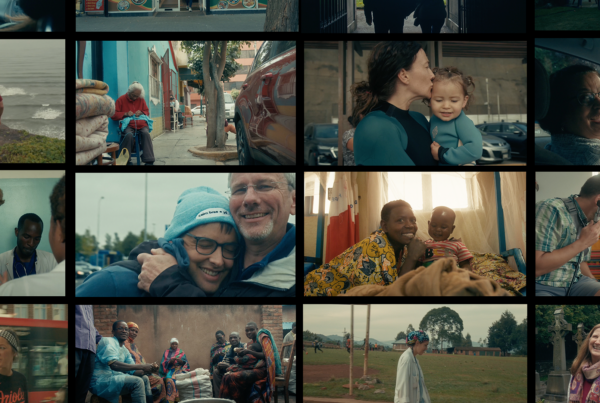It was my first unofficial week at Maynooth Community Church in Ireland.
A team of university students had come for the week to help with our upcoming Arts Festival. Eager to start adjusting to the church and culture, I joined in some of the preparations.
For the most part, it was awkward.
I wasn’t sure of my role in relation to the team, and I was especially unsure of how to interact with Irish students. We had some fun bonding moments—a late-night run to McDonald’s and a bowling night with the teens from the church.
But I still had a feeling of being an outsider.
That week happened to be the special assembly held by the Presbyterian Church in Ireland. Keith, my pastor, took the team up for the meeting and invited me along. The meeting was held in Northern Ireland, and the drive from where I live takes about three hours, so we left in the wee hours of the morning.
We spent the day attending training sessions, meeting other ministry leaders, and even taking a time of prayer and reflection. After dinner in town, we returned to the assembly for the closing meeting.
But as soon as we took our seats in the auditorium, I realized that I was going to be sick.
That’s when I thought, “You’ve got to be kidding me!”
I knew I couldn’t make it through the closing session. However, we were seated in the middle of a long row of people. There was no chance of an inconspicuous exit.
I had struggled the whole day through my insecurities as the only American in the group. The last thing I wanted was to draw any more attention to myself.
It was a difficult moment of realizing that cross-cultural adjustment will never be on my terms.
I spent most of the meeting running in and out of the auditorium and finally returned to sit on the floor in the back of the room.
One of the university students noticed my struggle and moved to sit beside me. She listened compassionately when I explained my illness, then pulled out her phone.
After a few minutes, she leaned in and whispered, “My mom lives nearby and she said you can stay with her tonight. And she’ll drive you to the bus station whenever you are ready to go back home tomorrow.”
The whole week I had struggled to interact and feel like I belonged in the group. Yet it only changed when I accepted that I was a helpless mess on the floor.
As kind as her offer was, I wanted to return home with the group. Another student caught on to my sickness and cared for me well. “I’ll sit beside you in the front seat,” she said. “And if you need to stop, just nudge me in the side. I’ll pretend like I’m having an emergency and then you won’t have to struggle alone.”
We did eventually make it home that night, with a somewhat smooth journey. And at the end of it, four of us girls sat in the car and laughed over everything that had happened.
Ministering out of weakness sounds nice when it’s a biblical standard we can appreciate from a distance. But the reality of it is kind of awful.
I want ministry to happen when I’m well and comfortably adjusted to my environment.
However, my Father is too gracious to bring me to ministry that isn’t awkward or deeply humbling.
It’s hard and it’s good.






